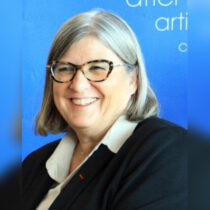Assistance Publique-Hôpitaux de Marseille
Area of expertise and the Healthcare Provider’s contribution to care for patients within the MetabERN Network
APHM is a pediatric and adult university multi-site hospital. It has 3103 beds (221 paediatrics departments, 1862 medical staff, 8468 paramedical staff and 1493 administrative staff). The children hospital provides for 51413 hospitalizations, 72164 emergency consultations, and over 5,000 births on an annual basis. 2531 patients are seen daily at the outpatient clinic. 258 transplantations were performed in 2015, 20 for paediatrics.
In APHM 7 RC for rare diseases, 37 competence centres & a research Centre dedicated to child and adolescent health research (DHU MaRCHE: Maladies Rares et Chroniques de l’Infant et l’Adolescent) was labialized in march 2015. The IMD centre see 1215 paediatrics patients (divided between 2 physicians) with 153 new diagnoses in 2015. 176 adults patients with IMD are seen by 2 physicians and collaborates with other national IMD centres and has been central in the establishment of the IMD national network “filiere G2M” as Pr CHABROL is the coordinator.
APHM will make important contributions to the IMD MetabERN in the following areas:
- Registries and data collection: Contribution to the national registry BAMARA.
- Expertise in multidisciplinary care: APHM groups specialised paediatric services including metabolism, child neurology (with a tight link between these 2 that are physically joined under a neurometabolic service), clinical genetics, gastroenterology, cardiology, nephrology, endocrinology and haematology-oncology. This multidisciplinary approach also includes dietitians, social services, rehabilitation and palliative needs of IMD patients and their families. It provides a high quality planned transition care and support program from the paediatric unit to adult services (also in APHM: Dr KAPHAN neurologist or Dr Mazodier physician.
- Patients at the centre of care: APHM has implemented a patient education program. The centre works with IMD patient groups through meetings, presentations, training and distributing information at the centre.
- Specialised laboratory facilities and early diagnosis: The hospital works in direct collaboration with specialised laboratory testing facilities. Biochemists and geneticists ensure an early diagnosis.
- Good practice guidelines: APHM has contributed to elaborating national and international good practise guidelines in several disease areas, including phenylketonuria, mucopolysaccharidosis, UCD, organic acidurias.
- Education and training: Activities include training for undergraduate, graduate and fellows. Pr Chabrol contributes to the metabolic DU at Paris Descartes University. Articles are regularly published in scientific journals. APHM regularly receives foreign medical Dr for training purposes and participates in the training of general paediatricians to IMD at a session at the French Pediatric Society meeting for whom Pr Chabrol is the president.
- Clinical and translational research: Over the years, APHM has been involved in R&D for several treatments, including ERT and small molecules.
specific treatments and interventions provided by the HCP
The progress in understanding the pathophysiology of the majority of IMD has led to the discovery of several new therapies that have made it possible to attenuate the severity of the clinical manifestations associated with many of these diseases. APHM provides the following specific treatments and interventions:
- Inborn errors of metabolism that respond to dietary therapy (therapeutic education): Cookery classes
- Examples of IMD that respond to treatment with cofactors or vitamins
- Hemodialysis, filtration (intoxication diseases: urea cycle disease, organic acidurias, Maple syrup urine disease (MSUD))
- Small molecules: mannose in CDG lb; serine, creatine
- Enzyme replacement therapy is currently available for the treatment of several LSDs. APHM provides the structure for i.v. administration of Aldurazyme® for the treatment of MPS I, Elaprase° for MPS II, Vimizim° for MPS IVA, Replagal° and Fabrazyme° for Fabry disease and Myozyme° for Pompe disease.
- Organ transplantation for children and adults: kidney to treat chronic renal failure (Organic acidurias, Fabry disease, cystinosis), liver (urea cycle diseases, organic aciduria, energetic diseases,..), cornea (mucopolysaccharidosis) hematopoietic stem cell transplantation, heart (cardiomyopathy)
- Inhibition of substrate synthesis
- Depletion of accumulated substrate
- “Hospitalisation A Domicile” (HAD, at home hospitalization service)
- Expertise in ethical and cultural socially difficult situations. This expertise has been accumulated over the years for the care of IMD (medical and dietary care).
- Expertise in palliative care an pain (specialised mobile team)
- Pr CHABROL is the Coordinator of a national clinical study (PHRC) about quality of life of patients and their parents, in the field of inborn errors of metabolism requiring a specific and restricted diet.
264 Rue Saint-Pierre, 13005 Marseille, France


